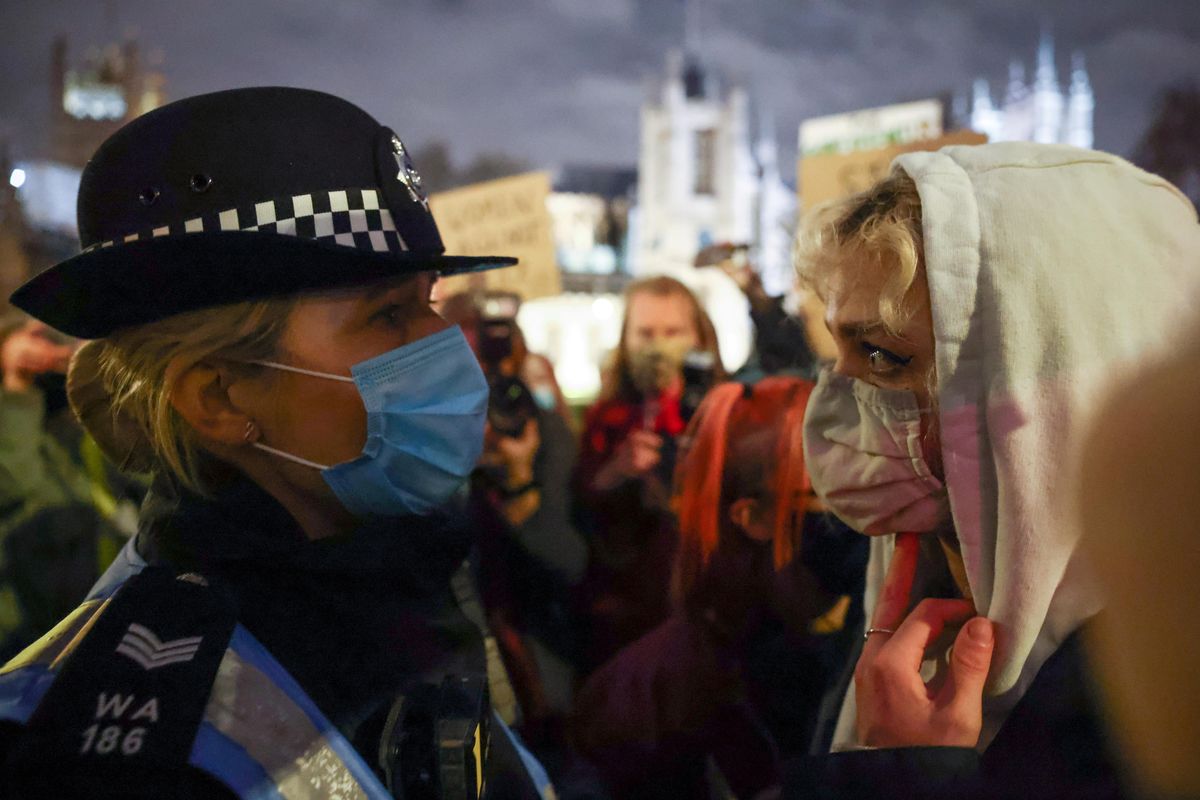London's reckoning with gender-based violence: London's police chief Cressida Dick is in hot water after police used heavy-handed tactics to crack down on a protest against violence against women. Hundreds of people gathered in South London Saturday to pay tribute to 33-year old Sarah Everard, who was abducted and killed last week while walking home from a friend's house (a London police officer has since been charged with her murder.) The gruesome crime has galvanized a women's movement, which says that London's streets are unsafe for women, and that gender-based violence is widespread. Images of police manhandling vigil attendees on Saturday prompted Prime Minister Boris Johnson to weigh in, saying he was "deeply concerned" by the footage and that steps would be taken to make London's women feel safe. The uproar comes right as the UK Parliament debates a bill that would on the one hand impose stricter jail sentences for rapists and domestic abusers, but which would also broaden police powers to "control" protests. More women-led demonstrations are planned for the days ahead.
Angela Merkel's party takes a beating: German Chancellor Angela Merkel may still be one of the most popular elected politicians in the world— but it's a different story for her ruling Christian Democratic Union (CDU) party. In two crucial state elections over the weekend, the center-right CDU got clobbered, drawing its lowest local vote tallies ever as the Green Party outpaced them in Baden-Württemberg and the center-left Social Democrats gained steam in Rhineland-Palatinate. Both states are former CDU strongholds. With Merkel set to step down after a general election this September, the result raises a host of questions about what German politics looks like after she's gone. New CDU party leader Armin Laschet isn't landing well with voters just yet, and while the party is still the most popular in Germany, its 30 percent support level (the party's lowest ever) raises questions about whether it will get enough votes this fall to form a coherent government. Speculation is already flying about the possibility of what would be a very bizarre cobble up of the Greens, the Social Democrats, and the economic liberals of the Free Democratic Party. To be fair, a lot can change in the next six months, but Germany's post-Merkel politics are shaping up to be much more fragmented than we've seen in many years.
Bolivia's former interim president jailed: Jeanine Áñez, the right-winger who ran Bolivia as interim president after Evo Morales was ousted in 2019, is now behind bars, facing charges of terrorism and sedition. Prosecutors of the new government — headed by a Morales protege who won a landslide election victory last fall — say that Áñez and several other officials played a direct and illegal role in pushing Morales from power after mass demonstrations erupted in response to allegations that he had rigged a presidential vote. There is a lot of bad blood here. During her time as president, Áñez made a number of conspicuous moves to roll back the legacy of Morales, a leftwing former coca-grower union boss who ran Bolivia with support from the country's massive indigenous population from 2006 until 2019. There were also allegations that she used security forces to crack down on Morales supporters who saw the 2019 events as a coup. But the jailing of Ms Áñez on what some observers say are flimsy charges has raised questions about whether this is an act of justice or a murkier story of political revenge. Either way, for Bolivia the political and social wounds of the past two years remain wide open.


















